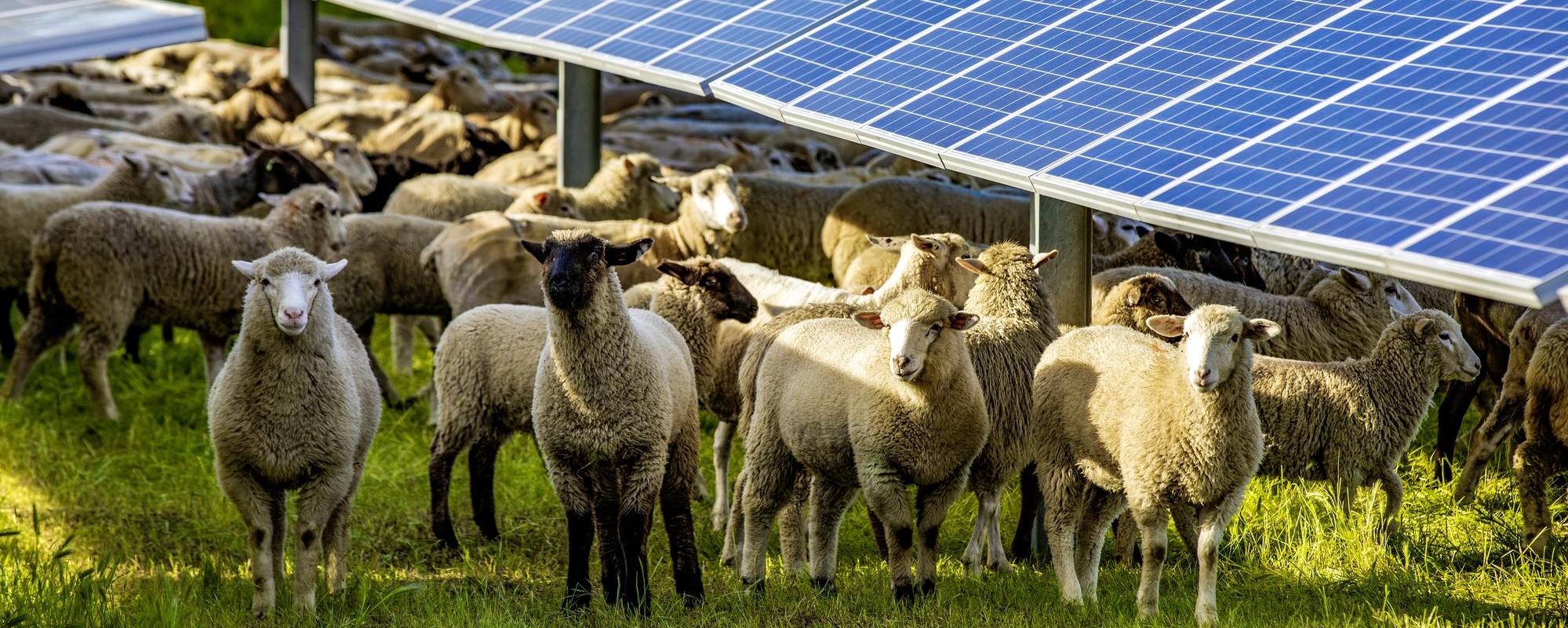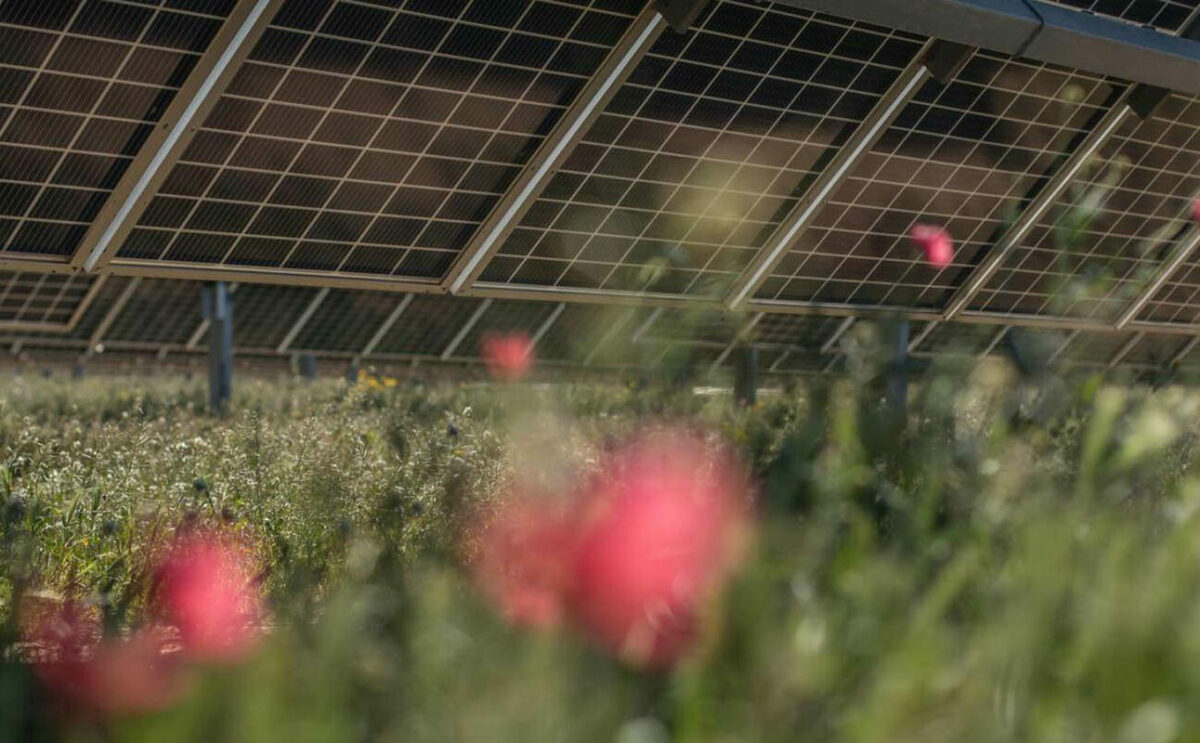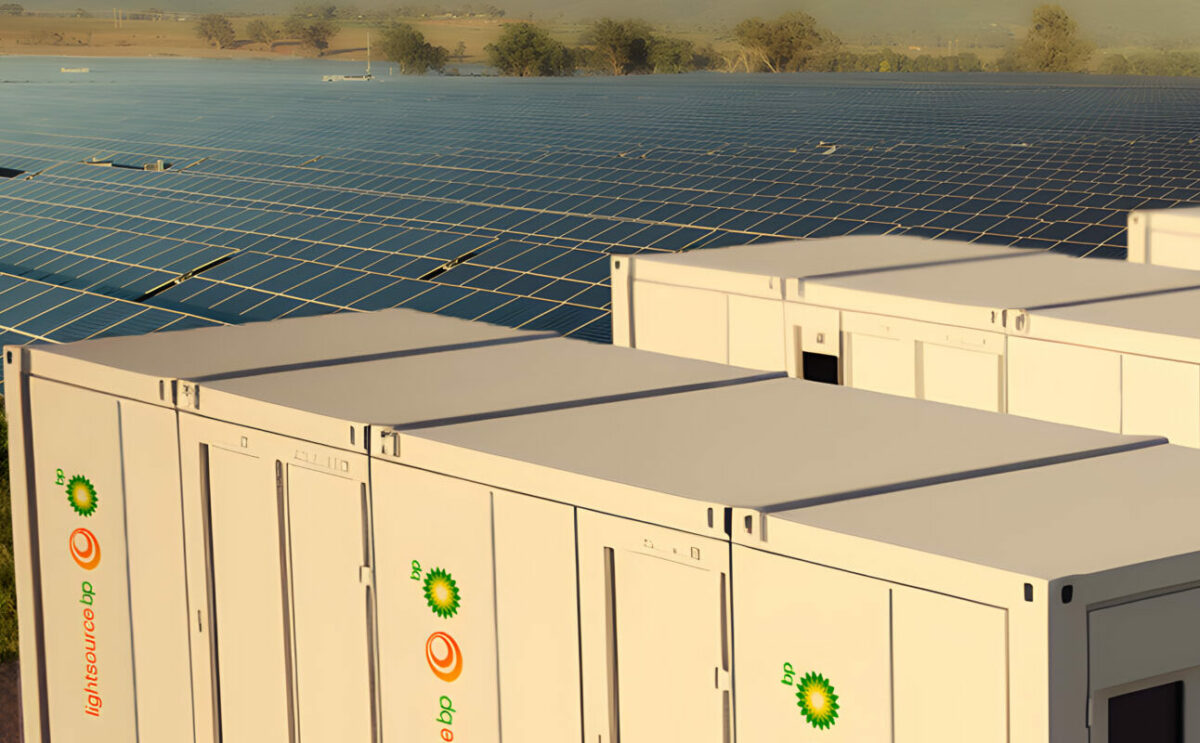Wool quality and sustainability: Insights from Lightsource bp’s Wellington solar farm
In a step forward for sustainable farming practices, Lightsource bp has seen promising results from the second round of wool testing at its Wellington solar farm, in New South Wales, Australia. The study, conducted by EMM Consulting, with support from Elders Rural Services, examined the potential benefits of co-locating sheep grazing and solar energy generation
Through comparisons of two groups of merino sheep – one group grazed in a regular paddock and the other at the Wellington solar farm – the findings suggest that the co-location of solar farming with sheep grazing is not negatively impacting wool production, even in the case of pre-existing high-quality standards. Some parameters even indicate an improvement in wool quality, although conclusive benefits require further long-term measurement.
Brendan Clarke, interim Head of Env Planning Aus & NZ, at Lightsource bp said: “Finding ways for agriculture and clean energy to work together is crucial for a more sustainable future. The promising results from this study indicate that we are on the right path, and working closely with farmers to grow our knowledge in this area is paramount.”
Emilien Simonot, Head of Agrivoltaics EMEA, at Lightsource bp, said: “These results are very encouraging and highlight the potential for solar farms to complement agricultural practices. By integrating sheep farming with solar energy production, we can achieve dual benefits of sustainable energy together with agricultural output.”
The study results are summarised in the table below.
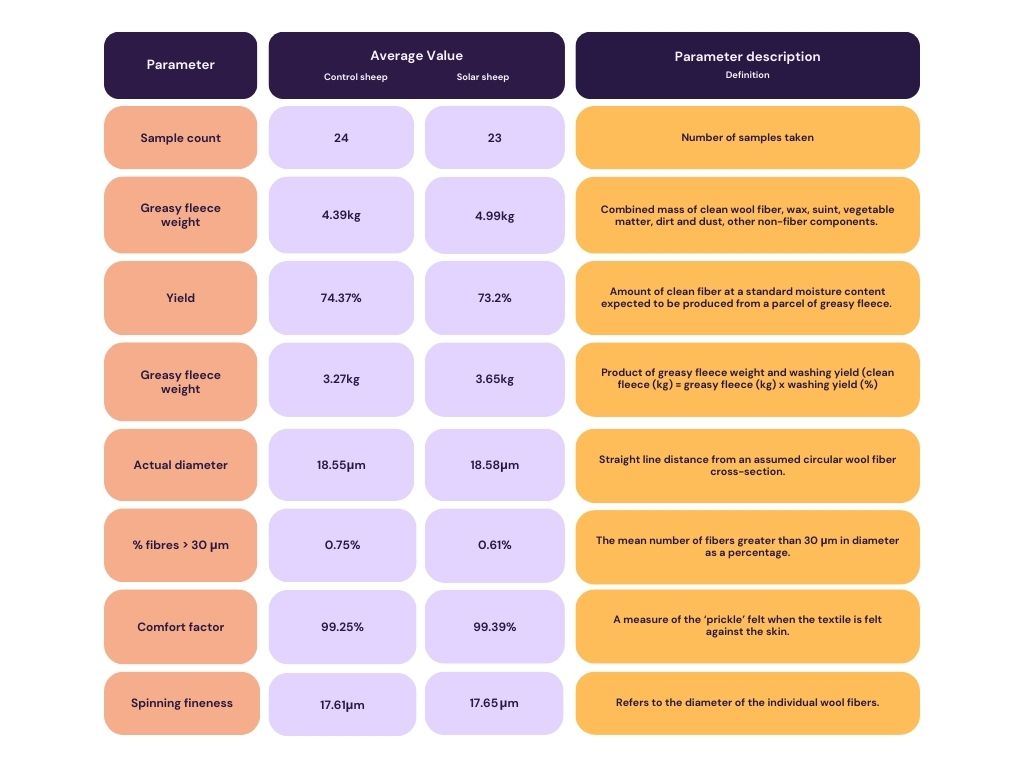
Sheep grazing and solar – a sustainable future for farming
While it is important to note that the study at the Wellington solar farm is ongoing, it is another indication that solar farms can offer a conducive environment for sheep farming, benefiting both renewable energy production and agricultural activities. By co-locating grazing with renewable energy, land can remain in agricultural use, offering farmers additional revenue while contributing to cleaner energy for the planet.
Lightsource bp is committed to promoting the growth and accessibility of solar power across the world, benefiting people, local communities and the planet.
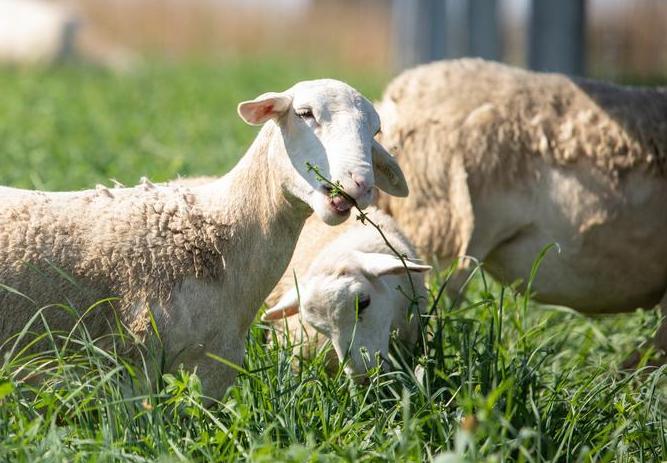
Learn more about agrivoltaics
Solar farms can grow more than electricity. Agrivoltaics (agriculture + “photovoltaics”) places crops or livestock underneath and between rows of solar panels. While researchers are trialling how to grow fruit and vegetable crops at scale, the most common and successful forms of agrivoltaics at solar projects currently are sheep grazing and bee keeping. These practices keep the land in agriculture while providing additional revenue for our farmer partners and ecosystem benefits to the environment.
Learn more about Lightsource bp’s agrivoltaics activity.
Latest news
22 Feb, 2026
Lightsource bp accelerates APAC hybrid strategy with sale of selected portfolio to Aula Energy
Lightsource bp has announced the sale of a selected portfolio of Australian solar assets to Aula Energy.
18 Sep, 2025
Lightsource bp advances its first solar and storage hybrid project
Lightsource bp has commenced delivery on one of the first large-scale DC-coupled solar-battery hybrid projects in Australia.
15 Dec, 2024
Australia: Lightsource bp reaches major milestone on solar and battery projects to deliver firmed renewable energy solutions
Lightsource bp announces it is commencing construction on its Goulburn River hybrid project and its Woolooga Battery Energy Storage System (BESS).

